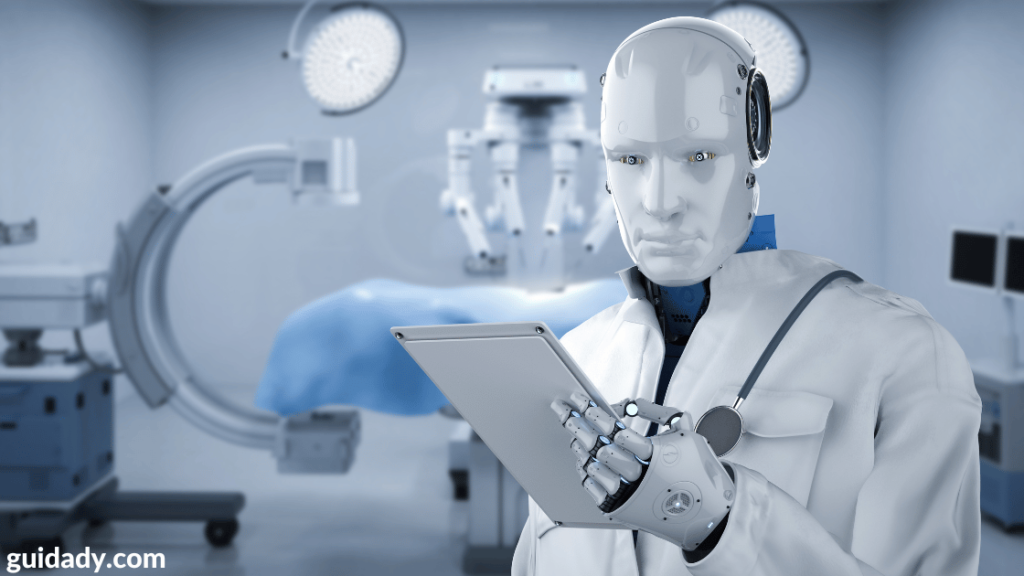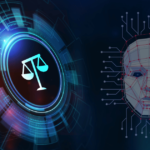The capabilities of neural networks and artificial intelligence are actively tested in various branches of medicine: from the diagnosis and prevention of diseases to virology and genetics. Anastasia Nikitina, a specialist in the mathematical modeling of SBER EPAPTEKA, will help to understand what they are and how they can affect the development of the sphere as a whole.
In the near future, medicine will comprehensively change. Computer technology is penetrating deeper into the field of health care, and already now some experts predict a qualitative leap in the development of medical technologies in the next ten years. In this material, we have collected some interesting cases with the use of AI in medicine.
Development and synthesis of drugs
The creation of a new drug from the idea to the launch of mass production takes up to ten years. It also additionally requires billions of dollars of investment in the work of research teams and the launch of multi-stage testing. On average, according to statistics, only 12% of the created drugs receive a patent and permission to produce, the rest do not undergo clinical testing, and the process begins anew.
That is why machine learning and neural networks began to be used to simplify the process of creating drugs. Today in the world there are about 30 large-scale projects using artificial intelligence that work in this direction.
The US Food and Drug Administration has launched its own project, the purpose of which is to reduce spending on clinical trials by orders of magnitude using machine learning.
The ai of the project is trained on the basis of the last 20 years of clinical trials of American drugs. And, according to experts, with its help, you can significantly increase the probability of successful passage of research: from 12% to 80%.
According to preliminary estimates, the use of artificial intelligence and neural networks will help reduce investments in the creation of medicines by four times, and the development time by half.

So far, concerns use AI only as an auxiliary tool for the synthesis of drugs, conducting all stages of clinical trials as usual. But the projects are already showing promising results.
AI in the service of nutrition
The success of artificial intelligence in the creation of vaccines against coronavirus is known around the world. Computer technology has reduced the development time of an effective vaccine to literally several months when classical research methods require at least a year or two.
But in fact, the research is much deeper than one can imagine. And they concern virology, preventive medicine, and nutrition, for which natural organic compounds are analyzed. There are tens of billions of them, so manual research is not very effective.
Clinical trials require large investments and can last several years. To develop a new drug, it is necessary to test dozens and hundreds of chemical compounds on cell cultures, which in the future will need to be tested on living organisms. Because of this, all phases of clinical trials can take several years.
Computer power can help researchers, significantly speeding up the process of creating new drugs, as well as significantly reducing the cost of conducting expensive clinical trials. For example, the British-Irish company Nuritas uses artificial intelligence to search for active organic compounds, which in theory can be used to treat and prevent diseases.
According to the company’s experts, the technology for analyzing chemical compounds using artificial intelligence is 600 times more accurate and ten times faster than standard methods.
However, you still can’t do without a person. After the neural network detects a promising connection, biochemists take up an in-depth study.
For eight years, the company’s employees have registered 65 patents in the medical industry, now the company is actively developing drugs to restore muscles, normalize glucose metabolism and slow down cellular aging.
It’s just one of several dozen projects that are studying chemical compounds to develop dietary and biological dietary supplements, as well as drugs. And the development of artificial intelligence in the future will further accelerate research and improve its effectiveness.
Investigation of rare diseases by neural networks
Today, 95% of rare diseases do not have standardized and internationally accepted treatment regimens.
According to the World Health Organization, diseases with a prevalence of 1 case per 1,000 people to 1 case per 200,000 people are considered rare.
Concerns do not invest too often in the search for cures for such diseases. After all, the company spends from $ 200 million to $ 2 billion to invent one drug The payback time of such studies will be decades, if they ever pay off.
The main difficulty in the treatment of rare diseases is not in the synthesis of drugs and laboratory tests, but in the lack of clinical data.
Therefore, Healx uses neural networks to create a complete information base of 7,000 rare diseases, in which it collects all the statements from scientific materials, patient databases, and drug research.
The created base helped in the development of a cure for Martin-Bell syndrome. In 18 months, the team was able to develop a drug that has already successfully passed two phases of clinical trials. For comparison, under normal conditions, the development and testing of a drug take from five to ten years. At the same time, the cost of its creation is simply orders of magnitude less than the classic ones.
In terms of information retrieval and classification, neural networks show excellent results. They can scan the Internet relatively quickly in all existing languages, collecting data related to a specific topic. To achieve such efficiency when working manually will not work.
Artificial Intelligence and Personalized Medicine
For most of the most common diseases, therapeutic regimens for taking medications have been developed. For the treatment of certain diseases (for example, tuberculosis or oncology), the only effective drugs are rather toxic substances. Due to low selectivity, such drugs have side effects, adversely affect the liver, kidneys and cardiovascular system. And if earlier there were no alternatives and the use of aggressive drugs was considered acceptable with damage to health in the process of treatment, now the technique is changing. The development of medicine and medicinal chemistry allows us to work not only on the search for fundamentally new drugs, but also on the selection of optimal treatment regimens according to already known methods.
Individual dosage of drugs that have strong side effects could reduce the negative impact on patients, but the complexity of the calculations does not allow them to be carried out en masse. In addition, they need to be carried out several times a day.
Neural networks are able to carry out such calculations quickly and efficiently. So, in 2018, scientists of the National University of Singapore developed an innovative system CURATE. AI for combination therapy of cancer patients using artificial intelligence.
Already during the first testing, the system showed its effectiveness. For a patient with advanced prostate cancer, the system calculated an individual combination of drugs throughout the course of treatment.
As a result, the growth of the tumor slowed down significantly, and then the disease completely went into remission. At the same time, the dosages of drugs were almost two times less than with standard therapy for such cases.
The personalization of therapy opens up unimaginable possibilities for medicine. In the presence of a sufficient amount of data, neural networks and other methods of machine learning can help not only to quickly solve the problem of optimizing the dose but also to select combinations of drugs to increase the effectiveness of treatment, determine the most effective treatment tactics and prevent critical patient conditions at the earliest stages.
Similar systems are already being used to monitor patients’ conditions and collect long-term medical data, but over time they will be increasingly integrated into the healthcare industry. It is important to note that in recent years, it is the methods of prevention and early diagnosis of diseases that have attracted more and more attention.





0 Comments